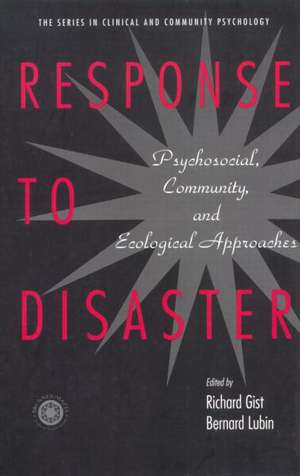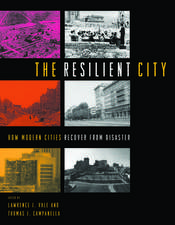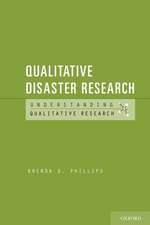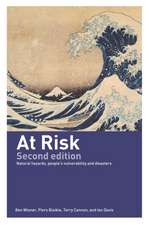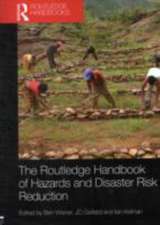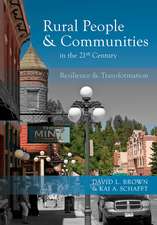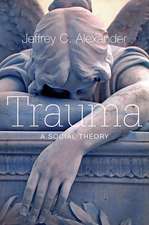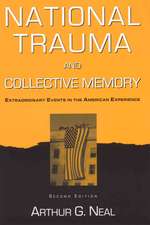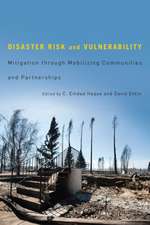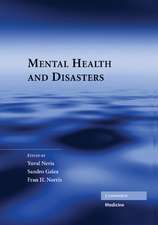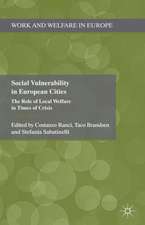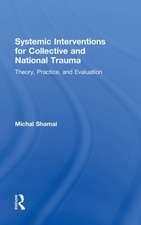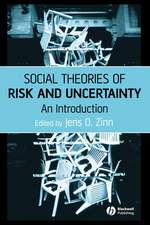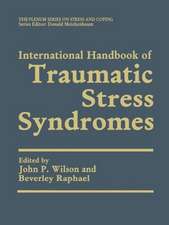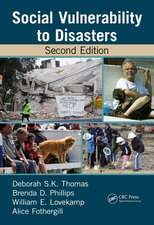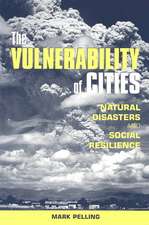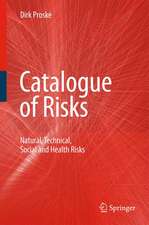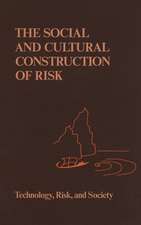Response to Disaster: Psychosocial, Community, and Ecological Approaches
Autor Richard Gist, Bernard Lubinen Limba Engleză Paperback – sep 1999
| Toate formatele și edițiile | Preț | Express |
|---|---|---|
| Paperback (1) | 392.90 lei 43-57 zile | |
| Taylor & Francis – sep 1999 | 392.90 lei 43-57 zile | |
| Hardback (1) | 976.92 lei 43-57 zile | |
| Taylor & Francis – sep 1999 | 976.92 lei 43-57 zile |
Preț: 392.90 lei
Preț vechi: 413.57 lei
-5% Nou
Puncte Express: 589
Preț estimativ în valută:
75.18€ • 78.71$ • 62.21£
75.18€ • 78.71$ • 62.21£
Carte tipărită la comandă
Livrare economică 07-21 aprilie
Preluare comenzi: 021 569.72.76
Specificații
ISBN-13: 9780876309995
ISBN-10: 0876309996
Pagini: 384
Dimensiuni: 152 x 229 x 22 mm
Greutate: 0.71 kg
Ediția:New.
Editura: Taylor & Francis
Colecția Routledge
Locul publicării:Oxford, United Kingdom
ISBN-10: 0876309996
Pagini: 384
Dimensiuni: 152 x 229 x 22 mm
Greutate: 0.71 kg
Ediția:New.
Editura: Taylor & Francis
Colecția Routledge
Locul publicării:Oxford, United Kingdom
Public țintă
Professional Practice & DevelopmentCuprins
Chapter 1 Psychosocial, Ecological, and Community Perspectives on Disaster Response, Richard Gist, Bernard Lubin, Bradley G. Redburn; Part 1 Theoretical Foundations; Chapter 2 The Experience of Disaster: Individuals and Communities Sharing Trauma, Krzysztof Kaniasty, Fran Norris; Chapter 3 The Short- and Long-Term Psychological Impact of Disasters: Implications for Mental Health Interventions and Policy, Mark S. Salzer, Leonard Bickman; Chapter 4 Assessing the Impact of Trauma in Work-Related Populations: Occupational and Cultural Determinants of Reactivity, Douglas Paton, Leigh M. Smith, Robert Ramsay, Debo Akande; Chapter 5 A Critical Look at PTSD: Constructs, Concepts, Epidemiology, and Implications, Jeffrey P. Staab, Carol S. Fullerton, Robert Ursano; Part 2 Community Strategies for Intervention; Chapter 6 The Help-Seeking Process for Distress after Disaster, Suzanne Yates, Danny Axsom, Karyn Tiedman; Chapter 7 Coping with Disastrous Events: An Empowerment Model of Community Healing, Julie van den Eynde, Arthur Veno; Chapter 8 Children’s Responses to Disaster: Family and Systems Approaches, Eric M. Vernberg; Chapter 9 There Are No Simple Solutions to Complex Problems: The Rise and Fall of Critical Incident Stress Debriefing as a Response to Occupational Stress in the Fire Service, Richard Gist, S. Joseph Woodall; Part 3 Contemporary Issues in Community Systems Research and Practice; Chapter 10 Ethical Issues in Working with Communities in Crisis, Patrick O’Neill; Chapter 11 “And Then You Do the Hokey-Pokey and You Turn Yourself Around…”, Richard Gist, S. Joseph Woodall, Lynn K. Magenheimer; Chapter 12 Pseudoscience and the Commercial Promotion of Trauma Treatments, Jeffrey M. Lohr, Robert W. Montgomery, Scott O. Lilienfeld, David F. Tolin; Chapter 13 In the Public Arena: Disaster as a Socially Constructed Problem, Lennis G. Echterling, Mary Lou Wylie; Epilogue;
